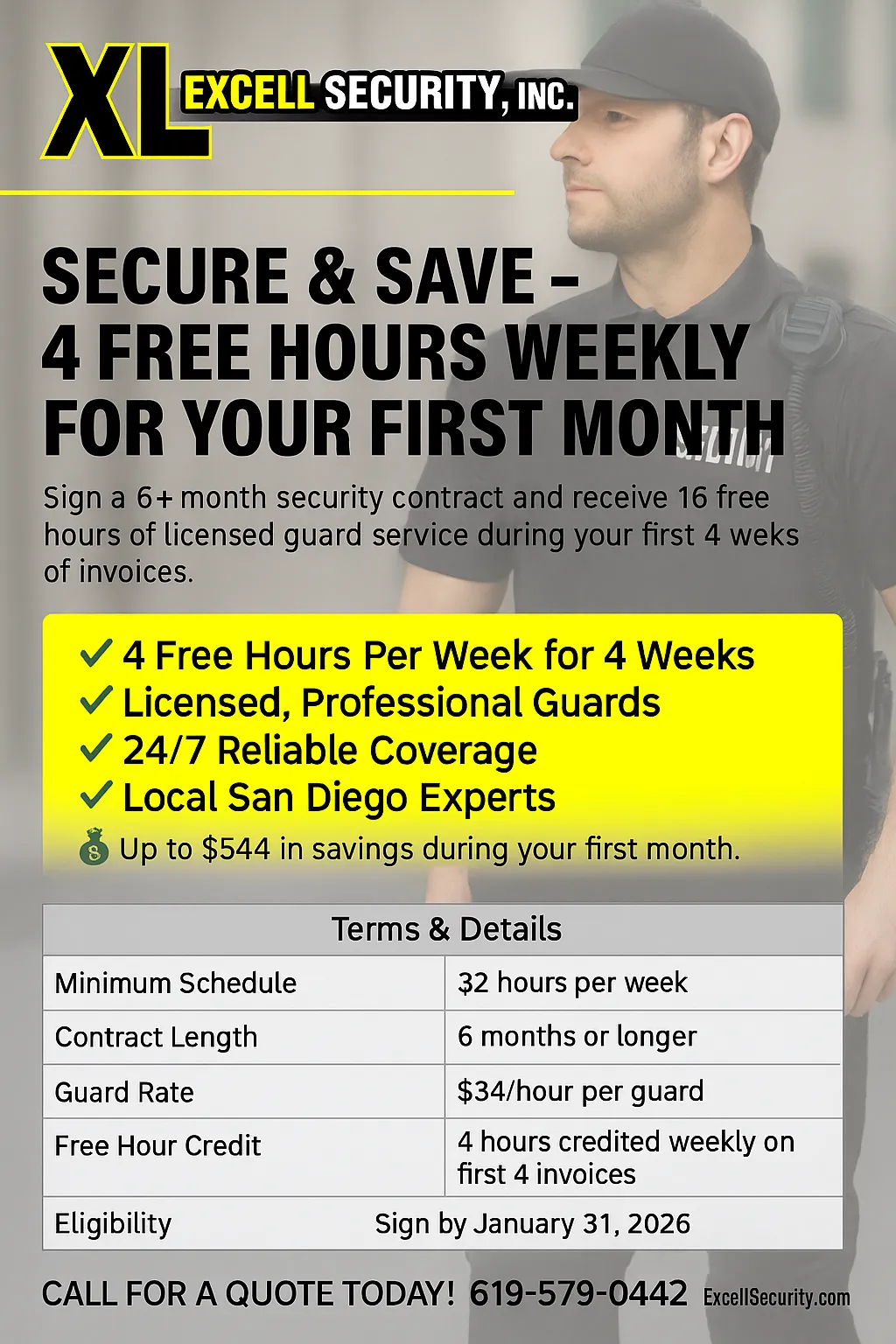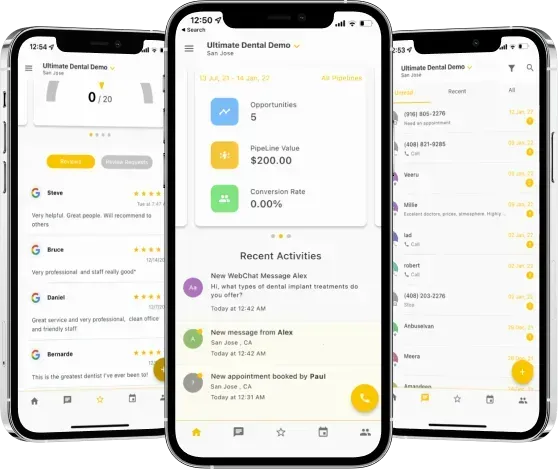
Secure & Save: 4 Free Hours Weekly for Your First Month
The LAST Marketing Software You’ll Ever Need
Sign a 6+ month security contract (minimum 32 hours/week) and receive 16 free hours during your first four weeks—$544 in value.


Excell Security – 4 Free Hours Weekly for Your First Month
San Diego Security Guards
New customer promo: sign a 6+ month security contract (32+ hrs/week) and get 4 free hours each week for your first 4 invoices. Licensed guards. San Diego local.

No More Duct-Taping Multiple Platforms

Learn More From Our Blog

How to Safeguard Your Community & Reduce Risk
Is an HOA Liable for Security Incidents?
How to Safeguard Your Community & Reduce Risk
When homeowners ask, “Is the HOA responsible for keeping us safe?” the answer depends on how well the association manages risk. While an HOA isn’t automatically liable for every crime, it can be held responsible if it fails to take reasonable steps to protect common areas or ignores known threats.
Here’s what every HOA board and property manager should know about liability—and how partnering with a professional security provider like Excell Security helps protect both residents and the association itself.
1. When Can an HOA Be Held Liable?
Courts typically hold that an HOA may be liable if:
It knew or should have known about prior criminal activity on or near the property.
A threat was reasonably foreseeable and the HOA failed to act.
Security measures were clearly inadequate or neglected in common areas.
In one well-known case (Frances T. v. Village Green), an HOA was found liable for a burglary after ignoring repeated lighting repair requests and prior incidents. The court ruled that the board had notice of risk but failed to respond.
The lesson: If there’s a pattern of incidents, the HOA must act. Failing to take reasonable preventive measures—such as lighting, patrols, or gate maintenance—can lead to claims of “negligent security.”
2. Who’s Responsible: The HOA Board vs. the Property Management Company
Both the HOA board and the property management company play critical roles in maintaining community safety—but their responsibilities differ.
🏛 HOA Board Responsibilities
Policy and Oversight: Establish the community’s approach to safety and determine what security measures to fund.
Budgeting: Allocate resources for lighting, gates, and patrol services.
Vendor Selection: Hire licensed, insured providers for security and maintenance.
Communication: Keep residents informed about policies, updates, and shared safety responsibilities.
Due Diligence: Document decisions and demonstrate that reasonable steps were taken.
The board ultimately holds the legal duty of care for the community’s common areas.
🧾 Property Management Responsibilities
Implementation: Carry out board-approved security policies and vendor contracts.
Maintenance: Ensure cameras, gates, and lighting systems are functional.
Incident Reporting: Log and communicate security concerns promptly to the board.
Vendor Coordination: Oversee patrol schedules and ensure guard services meet contractual standards.
The management company acts as the operational link between the HOA board’s decisions and day-to-day safety.
Together, these roles form a partnership that protects residents and minimizes liability.

3. How HOAs Can Reduce Security Liability
Here are the most effective ways to protect both your community and your legal standing:
✔ Clarify Responsibility
Include clear language in your CC&Rs and communications: the HOA provides reasonable security measures, not a guarantee of safety. Avoid statements that promise absolute protection.
✔ Maintain Common Areas
Fix lighting, gates, and access systems quickly. Poor maintenance is one of the most common triggers for liability claims.
✔ Conduct Regular Security Reviews
Partner with a licensed security provider for annual assessments. A professional audit identifies vulnerabilities, improves deterrence, and demonstrates the board’s due diligence.
✔ Hire Licensed, Insured Guards
Licensed guards are trained, background-checked, and insured. They deter crime and document patrols—critical evidence if an incident occurs.
✔ Keep Residents Engaged
Encourage residents to report suspicious activity and participate in neighborhood watch programs (focused on observation, not confrontation).
4. How Excell Security Helps
Excell Security partners with HOAs and property management companies across San Diego to reduce risk and strengthen community safety through:
Licensed patrol officers and on-site guards
Custom patrol schedules and digital reporting for documentation and transparency
Security audits and recommendations for lighting, cameras, and gates
Resident and board training on situational awareness and emergency response
Our goal is to help you maintain a safe, compliant, and well-documented community—one that residents trust and insurers respect.
5. The Bottom Line
HOAs aren’t expected to eliminate all risk—but they are expected to take reasonable, proactive measures to prevent foreseeable harm. By working closely with your property management team and a licensed security provider, you can protect your community, your residents, and your board from costly liability.
📞 Schedule a community security review today.
Call 619-579-0442 or visit ExcellSecurity.com to learn how Excell can help your HOA stay protected and compliant.

Copyright 2026 - EXCELL SECURITY . All Rights Reserved



